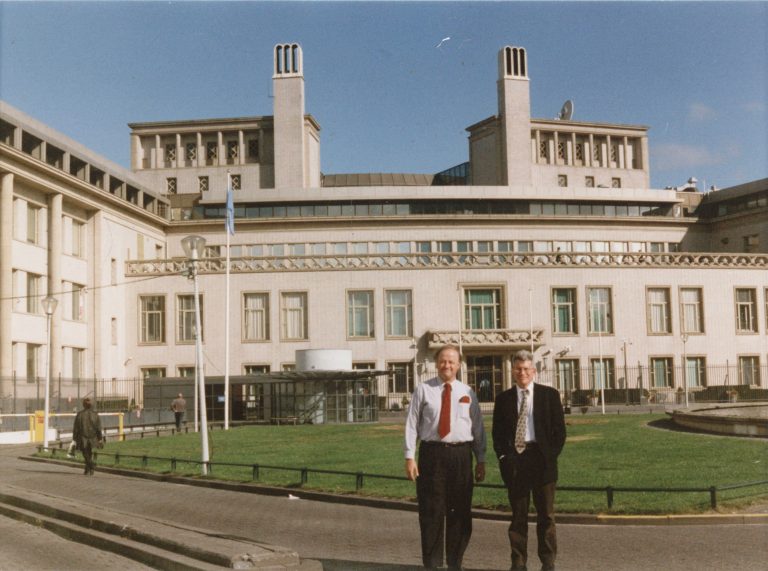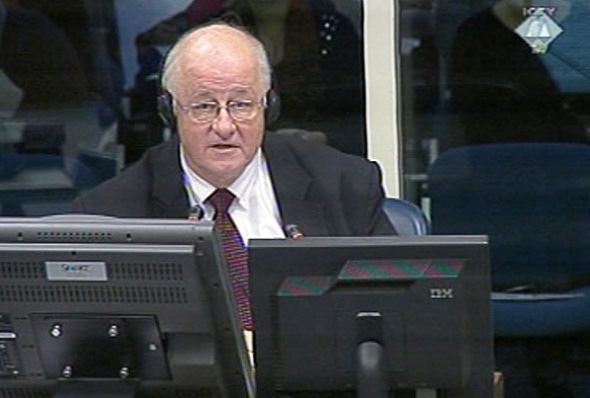The Andras Riedlmayer Collection
Introduction to the Andras Riedlmayer Collection
Southeastern Europe has long served as a cultural intersection, where major empires, faiths, and civilizations of the Mediterranean region have converged and blended with vibrant local traditions since antiquity. The long history of cultural interactions has given this region a remarkable legacy, including a still thriving, 600-year-old Islamic tradition, a part of European heritage that deserves to be better known.
The international armed conflicts in the territory of the former Yugoslavia in the 1990s were also an attempt to erase this diversity. These conflicts resulted in the deaths of close to 150,000 and the forced exile of millions of people, singled out for persecution, expulsion, and genocide because of their cultural and religious identity. The violence against people was accompanied by systematic attacks on their heritage: the targeted destruction of historic buildings, houses of worship, manuscript libraries, and archives. A Council of Europe report in 1993 termed it a cultural catastrophe in the heart of Europe.
Based on Andras Riedlmayer's fieldwork for the International Criminal Tribunal for the former Yugoslavia (ICTY) in The Hague, his archive documents the history of this region's diverse cultural heritage, as well as his findings concerning its fate in the 1990s wars in Bosnia and Kosovo and the efforts to bring to justice those criminally responsible for this destruction.
A native of Budapest, Hungary, from 1985 to 2020 András Riedlmayer directed The Documentation Centre for Islamic Architecture at Harvard University’s Fine Arts Library. He studied at the University of Chicago and at Princeton University, where he read Ottoman history and Near Eastern Studies. He has published widely in academic and professional journals and has served as president of the Ottoman and Turkish Studies Association and as a member of the board of the Islamic Manuscript Association.
For more than 25 years, Mr. Riedlmayer has been documenting the systematic destruction of libraries and other cultural heritage in the wars in former Yugoslavia in the 1990s, and in organizing postwar assistance to cultural institutions in the region. In 2002, he appeared as an expert witness on cultural destruction in the trial of former Yugoslav President Slobodan Milošević at the ICTY. Since then, he has testified as an expert witness in nine cases before the ICTY, including the trials of former Bosnian Serb leader Dr. Radovan Karadžić and his military chief, Gen. Ratko Mladić, and in the genocide case brought by Bosnia-Herzegovina against Serbia before the International Court of Justice.


Order of the Collection
Order of the Collection
The András Riedlmayer collection is divided into three series: Bosnia and Herzegovina, Kosovo, and the International Court of Justice, each containing multiple cases and primary source materials.
Through his extensive work and expert testimony, Riedlmayer played a key role in establishing evidence of the deliberate and systematic destruction of cultural and religious heritage sites during the wars in Bosnia and Kosovo.
It is suggested that, for research and educational narrative purposes, the collection be approached in the following order:
I. Bosnia and Herzegovina Trial Records: This section comprises case information sheets, relevant prosecution exhibits, trial transcripts, miscellaneous items and other judicial documents, as well as field investigations and expert reports by András Riedlmayer pertaining to the 1992-1995 Bosnian War.
- IT-08-91 Mladić, Ratko
- IT-95-5/18-I Karadžić, Radovan
- IT-02-54 Milošević, Slobodan
- IT-08-91 Stanišić & Župljanin
- IT-00-39 Krajišnik, Momčilo
- IT-03-67 Šešelj, Vojislav
II. Kosovo Trial Records: This section comprises case information sheets, relevant prosecution exhibits, trial transcripts, miscellaneous items and other judicial documents, as well as field investigations and expert reports by András Riedlmayer pertaining to the 1998-1999 Kosovo War.
- IT-02-54 Milošević, Slobodan
- IT-05-87 Milutinović et al.
- IT-05-87/1 Đorđević (Djordjevic), Vlastimir
- IT-05-87 Šainović et al.
III. International Court of Justice Records: This section features the oral and written proceedings, as well as the judicial decision of the case Application of the Convention on the Prevention and Punishment of the Crime of Genocide (Bosnia and Herzegovina v. Serbia and Montenegro). Established in June 1945 by the UN Charter, the International Court of Justice began its operations in April 1946. As the principal judicial body of the United Nations, it primarily resolves legal disputes between states in accordance with international law. Additionally, the Court also provides advisory opinions on legal questions referred to it by authorized United Nations organs and specialized agencies.
You can access the collection here.